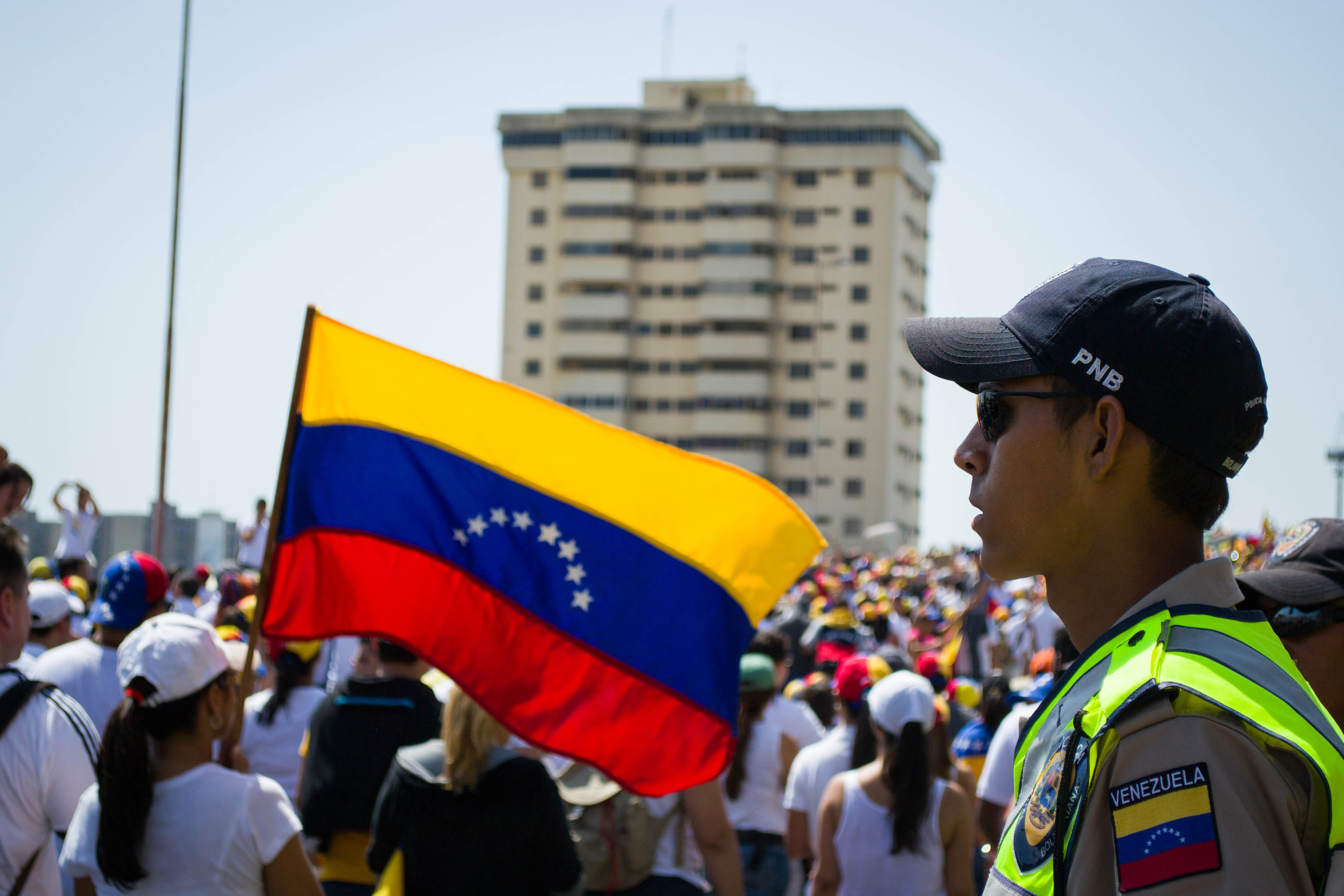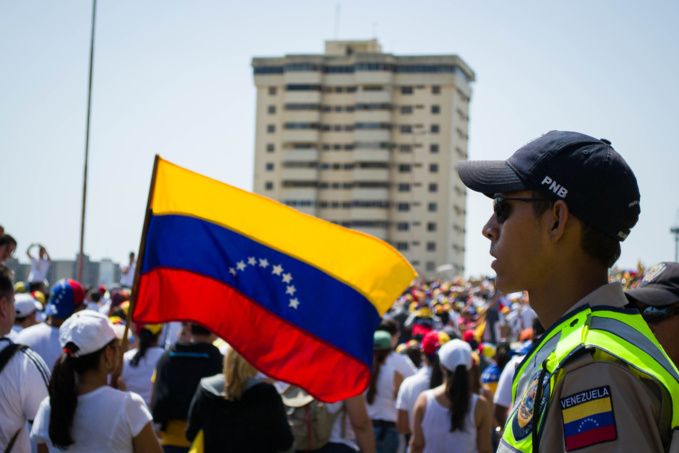All this is happening against shortage of food and medicine, a huge inflation and threat of depopulation, which hit Venezuelan citizens this year.
How come the situation in Venezuela has become so bad even despite the fact there is more oil than in any other country in the world? Here are four reasons why the critical situation in the country continues to deteriorate.
1. Three-year recession
The recession in Venezuela has been lasting for already three years. The International Monetary Fund expects that the country’s economy will shrink by 10% in 2016. According to the organization’s forecast, Venezuela will not come out of recession until 2019. The economy keeps collapsing and prices of goods are rising sharply. The IMF says inflation growth may amount to 475% in 2016. Venezuelan currency dropped significantly in price. For example, the dollar was equal to 100 bolivars exactly two years ago. Today, a dollar is worth 1262 bolivars. During many years, the government spent too much money on social assistance programs, poorly managed industrial institutions and dilapidated farms. This paved a way for the crisis.
2. Petroleum
The situation got much worse when oil prices began to fall in 2014. Venezuela possesses the largest reserves of this raw material in the world. Oil accounts for more than 95% of exports revenue. When there’s no demand for oil, there’s no funds for Venezuela. In 2014, oil prices exceeded $ 100 per barrel. At the moment, they range around $ 50 per barrel, and earlier this year reached a level of $ 26. The problem is that Venezuela has missed an opportunity to invest in oil fields when conditions were favorable. The country neglected maintenance of oilfield facilities, and there’s no surprise that production reached the lowest level in 13 years.
Venezuela's state oil giant, PDVSA, has not paid to companies that are involved in the production, such as Schlumberger. This spring, Schlumberger and others have sharply reduced cooperation with PDVSA due to unpaid bills. Recently, PDVSA warned that it probably will not be able to pay debts if bondholders do not accept new terms of payment. Eventually, the new agreement was accepted by just as many investors as PDVSA needed to avoid default this year. However, experts argue that this step only postponed, not cancelled default.
3. Soaring prices for food products and non-performing hospitals
This year, food shortage in Venezuela has become severe. For weeks and sometimes months, inhabitants of the country survived without milk, eggs, flour, soap and even toilet paper.
Despite the collapsed of currency and falling oil revenues, the government kept holding back prices of goods sold in supermarkets. As a result, food importers have virtually stopped importing as trading in such conditions ends up with heavy losses. According to some estimates, import of food products fell by almost 50% in the first half of 2016 yoy. Only recently the government suspended containment of prices, and food appeared on the shelves again. However, prices are so high that only few Venezuelans can afford to buy food. Medicine also suffered. Venezuelans are looking for penicillin and other drugs in all pharmacies, often unsuccessfully. State hospitals are in such disrepair that people, including small children, are dying due to lack of simple medical care.
4. Exhausted cash and gold reserves
Venezuelan funds are nearing the rock bottom. There is no money to pay expenses. Numbers do not add up: the country must return $ 15 billion of debt until the end of 2017, while reserve fund of the national central bank has only $ 11.8 billion. PDVSA, the only source of cash in Venezuela, began to produce less oil and is at risk of default. Most of the country's reserves are stored in the form of gold. Venezuela sent to Switzerland gold bullions to pay debts in 2016. There was a time when China would provide billions of dollars of financial assistance to Venezuela. Now even Chinese partners ceased to provide funds to its Latin American ally.
source: money.cnn.com
How come the situation in Venezuela has become so bad even despite the fact there is more oil than in any other country in the world? Here are four reasons why the critical situation in the country continues to deteriorate.
1. Three-year recession
The recession in Venezuela has been lasting for already three years. The International Monetary Fund expects that the country’s economy will shrink by 10% in 2016. According to the organization’s forecast, Venezuela will not come out of recession until 2019. The economy keeps collapsing and prices of goods are rising sharply. The IMF says inflation growth may amount to 475% in 2016. Venezuelan currency dropped significantly in price. For example, the dollar was equal to 100 bolivars exactly two years ago. Today, a dollar is worth 1262 bolivars. During many years, the government spent too much money on social assistance programs, poorly managed industrial institutions and dilapidated farms. This paved a way for the crisis.
2. Petroleum
The situation got much worse when oil prices began to fall in 2014. Venezuela possesses the largest reserves of this raw material in the world. Oil accounts for more than 95% of exports revenue. When there’s no demand for oil, there’s no funds for Venezuela. In 2014, oil prices exceeded $ 100 per barrel. At the moment, they range around $ 50 per barrel, and earlier this year reached a level of $ 26. The problem is that Venezuela has missed an opportunity to invest in oil fields when conditions were favorable. The country neglected maintenance of oilfield facilities, and there’s no surprise that production reached the lowest level in 13 years.
Venezuela's state oil giant, PDVSA, has not paid to companies that are involved in the production, such as Schlumberger. This spring, Schlumberger and others have sharply reduced cooperation with PDVSA due to unpaid bills. Recently, PDVSA warned that it probably will not be able to pay debts if bondholders do not accept new terms of payment. Eventually, the new agreement was accepted by just as many investors as PDVSA needed to avoid default this year. However, experts argue that this step only postponed, not cancelled default.
3. Soaring prices for food products and non-performing hospitals
This year, food shortage in Venezuela has become severe. For weeks and sometimes months, inhabitants of the country survived without milk, eggs, flour, soap and even toilet paper.
Despite the collapsed of currency and falling oil revenues, the government kept holding back prices of goods sold in supermarkets. As a result, food importers have virtually stopped importing as trading in such conditions ends up with heavy losses. According to some estimates, import of food products fell by almost 50% in the first half of 2016 yoy. Only recently the government suspended containment of prices, and food appeared on the shelves again. However, prices are so high that only few Venezuelans can afford to buy food. Medicine also suffered. Venezuelans are looking for penicillin and other drugs in all pharmacies, often unsuccessfully. State hospitals are in such disrepair that people, including small children, are dying due to lack of simple medical care.
4. Exhausted cash and gold reserves
Venezuelan funds are nearing the rock bottom. There is no money to pay expenses. Numbers do not add up: the country must return $ 15 billion of debt until the end of 2017, while reserve fund of the national central bank has only $ 11.8 billion. PDVSA, the only source of cash in Venezuela, began to produce less oil and is at risk of default. Most of the country's reserves are stored in the form of gold. Venezuela sent to Switzerland gold bullions to pay debts in 2016. There was a time when China would provide billions of dollars of financial assistance to Venezuela. Now even Chinese partners ceased to provide funds to its Latin American ally.
source: money.cnn.com



















